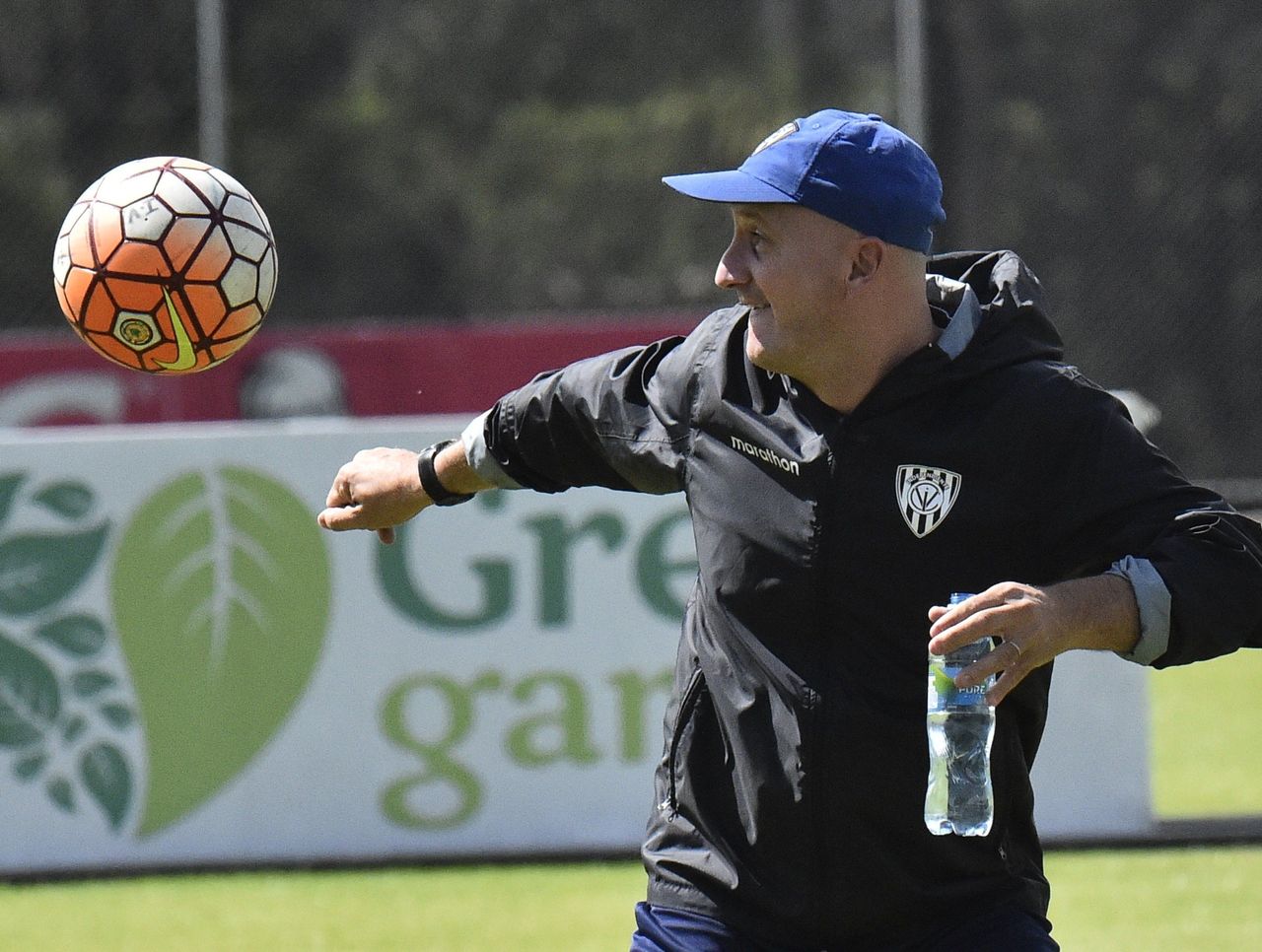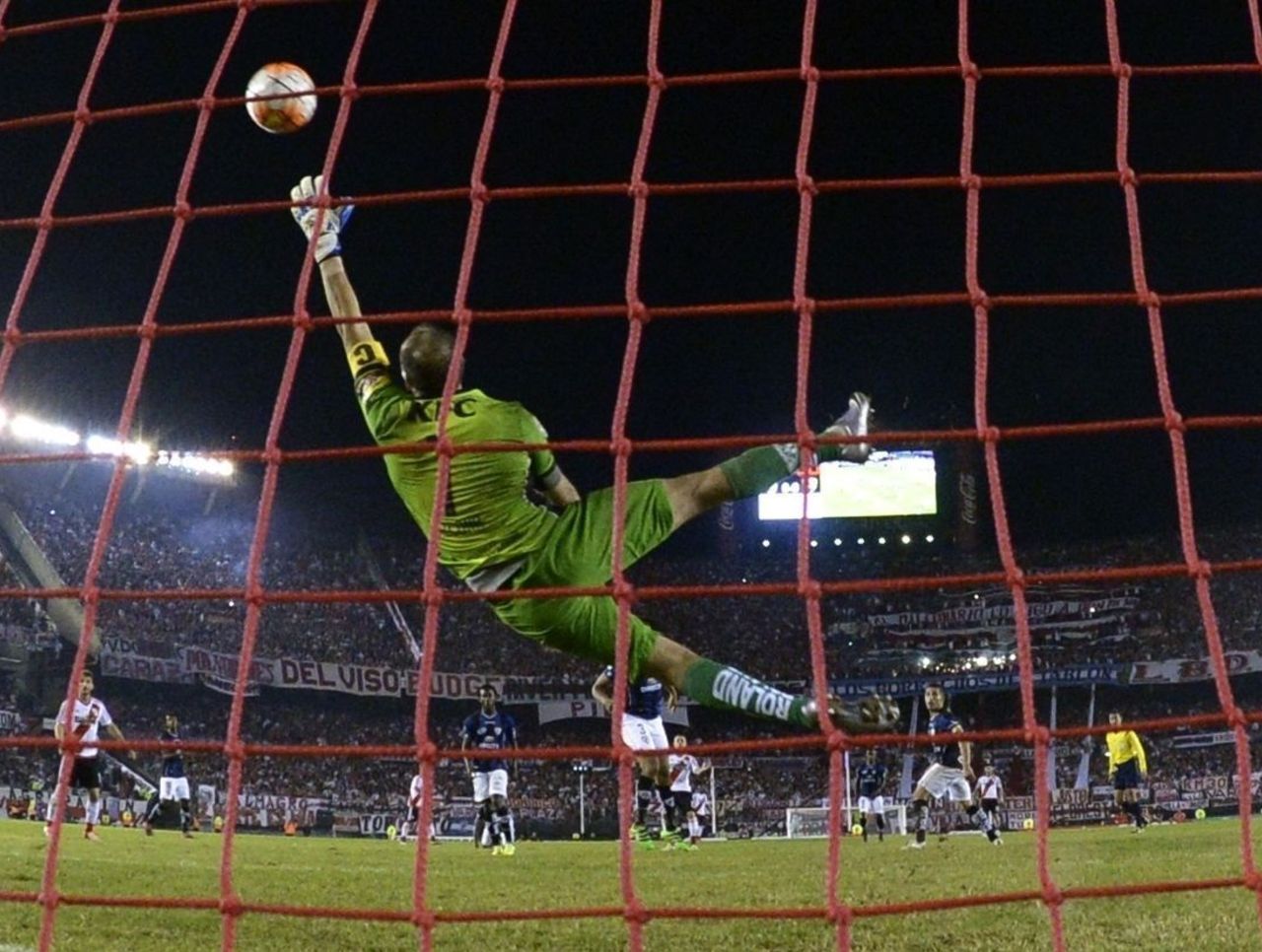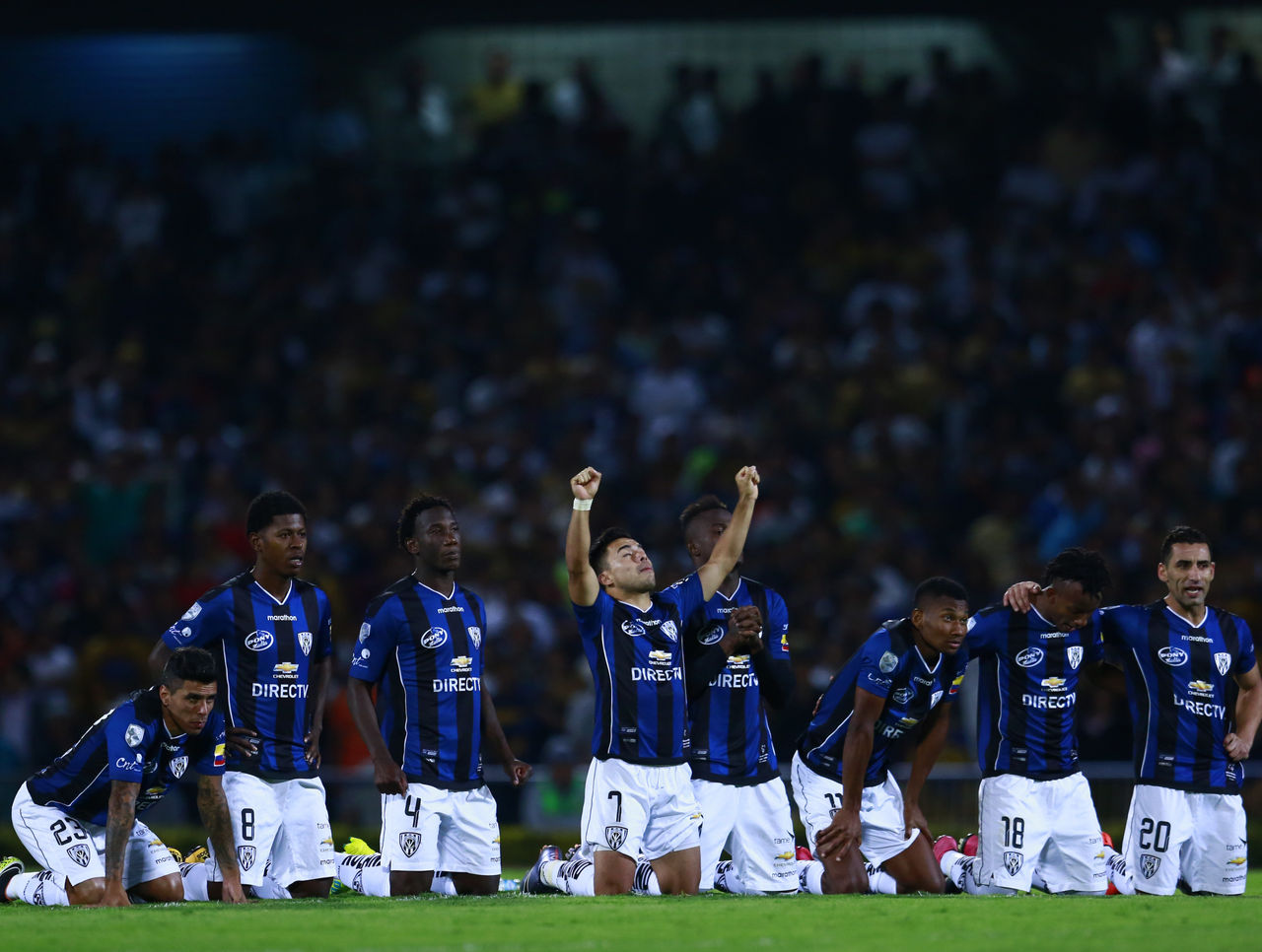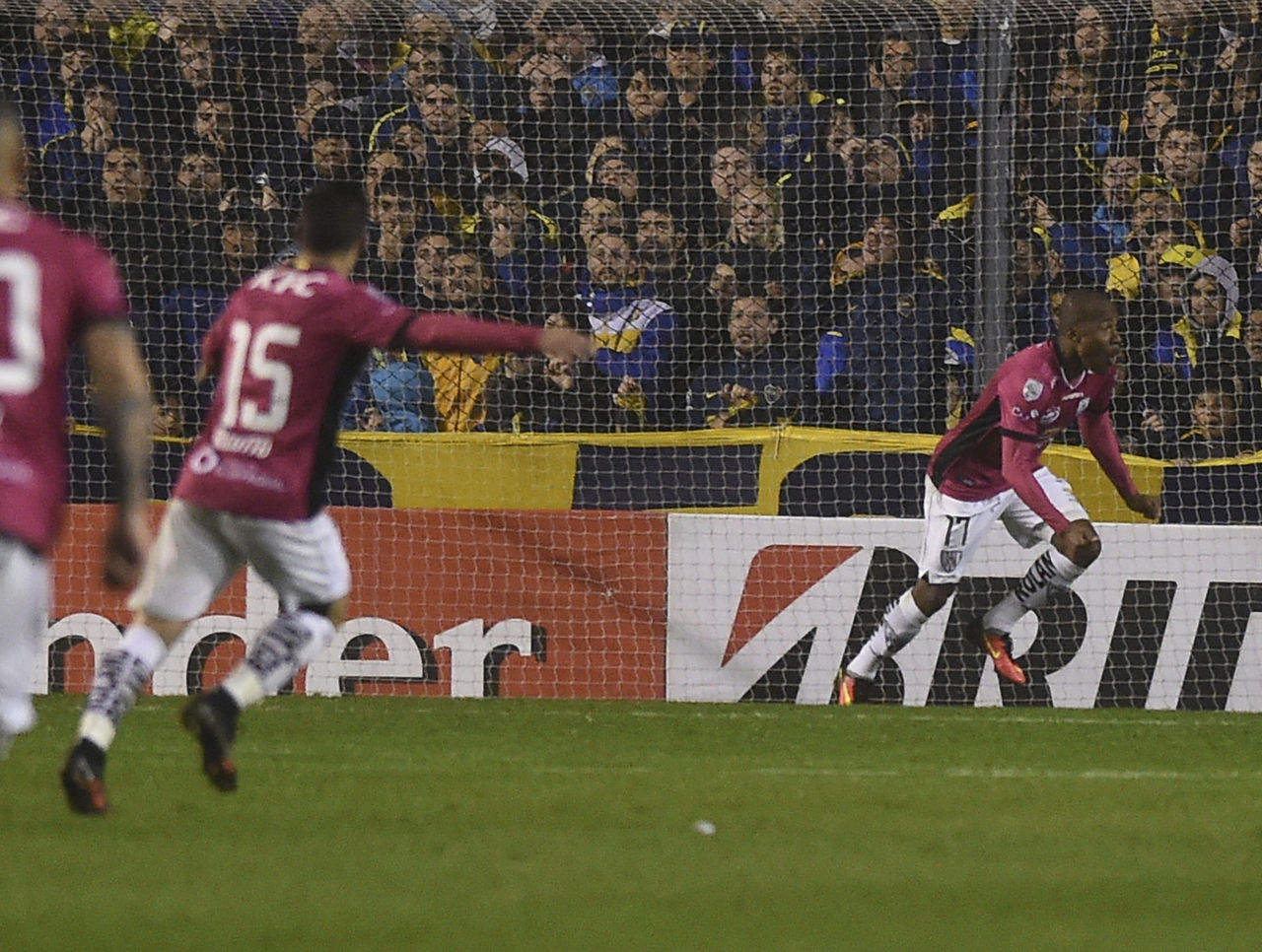From the underground: Independiente del Valle's rise is unprecedented in football
Only nine years ago, Independiente del Valle was playing in what is essentially the third division of Ecuadorian football, where the level of play is considered so low that Guinness World Records refused to acknowledge a 44-1 win as the largest-ever margin of victory.
But almost a decade later, having earned promotion to Ecuador's second division in 2007 and first division in 2010, and having taken down some of Latin America's giants in this year's Copa Libertadores, Independiente del Valle is within touching distance of South American football's summit.
It's hard to quantify Independiente del Valle's meteoric rise. What the club is doing is unprecedented, and there aren't really any comparisons that do it justice. Leicester City's conquest of the Premier League was undoubtedly a fairy tale and Wales' run to the semi-finals of Euro 2016 was a great story, but neither of those examples compare to the Ecuadorian minnow's ascension.
Independiente del Valle is a club that operates along the lines of an academy. Its model is based on developing its own players and signing youngsters from other clubs. Jefferson Montero is its most eminent graduate. Furthermore, the team plays in a stadium with a capacity of just over 7,000 that is based in Sangolqui, Ecuador, a suburb of Quito, the country's capital.
Walk around Ecuador and you'll be hard-pressed to find anyone who supports Independiente del Valle. It is a club that, until this year, was respected but not widely supported by any means.
Pablo Repetto, a Uruguayan manager, is the face of the revolution. Appointed in September 2012, he is responsible for grooming the likes of Junior Sornoza, who boasts six goals in this year's Copa Libertadores, and Gabriel Cortez, a 20-year-old whose future looks phenomenally bright. There's also Jefferson Orejuela, a central midfielder who can dictate the tempo of play. In defence, the centre-back pairing of Arturo Mina and Luis Caicedo may very well be Ecuador's centre-back pairing at the 2018 World Cup.

Bryan Cabezas, however, is the most encouraging of the crop. Quick, strong, and talented, the 19-year-old exemplifies a successful youth policy and bears a striking resemblance to Montero by playing on the left side of the pitch.
Beyond developing raw talent, Independiente del Valle is a club that is capable of injecting self-belief into its youngsters. Just how the club reached the final of this year's Copa Libertadores is a chronicle that transcends football and will likely never be replicated.
In each and every round, from the first phase to the semi-finals, Independiente del Valle found itself with its back against the wall yet managed to overcome the odds.
Taking on Guarani in the first phase, Independiente del Valle looked set to be knocked out of the Copa Libertadores before the group stage had even commenced. The Paraguayan club was awarded a penalty kick in second-half stoppage time of the second leg, but, with the last kick of the fixture, Hernan Rodrigo Lopez sent the ball into the darkness of the night. Had he converted it, Repetto's boys wouldn't have progressed.
In the round of 16, in a battle between minnow and piranha, Independiente del Valle met River Plate, the reigning champion. After accumulating a 2-0 lead on aggregate in the first leg at the Estadio Olimpico Atahualpa, the Ecuadorian club defended for its life in the second leg and was out-shot 34-3 at El Monumental. But Daniel Azcona, the Paraguayan 'keeper who is a veteran within Repetto's side, produced the best 90 minutes of his career and the king was dethroned.

Having overthrown River, Independiente del Valle was rewarded with a clash against Pumas UNAM in the quarter-finals, meaning there would be a lengthy trip to Mexico for the second leg. Down 3-2 on aggregate with less than half an hour remaining in the tie, the fantasy looked set to reach its conclusion. But a free-kick from Sornoza levelled the score, and, since extra time is merely a myth in the Copa Libertadores until the final, a penalty shootout was required to settle things.
Five beautiful penalties from Independiente del Valle and a wonderful save from Azcona resulted in the Ecuadorian underdog living to see another day.

Next up for Independiente del Valle was a date with Boca Juniors, the most imposing of South American clubs, in the semi-finals. Regardless of what the Ecuadorian gatecrasher had achieved in the prior rounds, this was where the party was surely supposed to end for Repetto's squad.
Juan Roman Riquelme, among the most beloved players in Boca's rich history, didn't give Independiente del Valle a chance in hell, proclaiming: "I don't think there's ever been an easier way to get to the final."
Sure enough, Independiente del Valle crossed Boca off its hit list, and one can only wonder what was going through Riquelme's mind as the little guy from Ecuador eviscerated the Argentinian giant over the course of 180 minutes. Whereas the victories over River and Pumas were narrow, this win wasn't.

Independiente del Valle defeated Boca 2-1 in the first leg in Ecuador and then scored another three goals with its first three shots on target at La Bombonera. While Diego Maradona watched the disembowelment from the stands, Rafael Correa, Ecuador's leftist president, took to Twitter and suggested Azcona take his job after the 'keeper saved an awful penalty by Nicolas Lodeiro.
¡Azcona presidenteee!!!
— Rafael Correa (@MashiRafael) July 15, 2016
Marathon Sports, the provider of Independiente del Valle's kit, also got in on the fun, writing: "Don't cry for me Argentina."
La grandeza se demuestra con fútbol, los grandes son aquellos que lo ratifican en cancha! Felicitaciones @IDV_EC ! pic.twitter.com/3lD68rCdLW
— Marathon Sports (@marathonsports_) July 15, 2016
So, having eliminated three of Latin America's biggest clubs, Independiente del Valle, essentially a third-division team only nine years ago, is in the final of the Copa Libertadores. This isn't Leicester. This isn't Wales. This isn't David versus Goliath. This isn't a story that could be told in the Champions League, where, year after year, the usual members of the upper class compete for a trophy.
Independiente del Valle is only the third club from Ecuador to reach the final of the Copa Libertadores, and could be only the second team from the country to win the tournament after Liga Deportiva Universitaria de Quito's conquering of South America in 2008.
All that stands in Independiente del Valle's way is Atletico Nacional, the club from Colombia that won the Copa Libertadores in 1989, when narco-football was booming. This time around, however, the team is enjoying success without the support of Pablo Escobar.
Having gone from the mines of South America to the peaks of the Andes in less than a decade, Independiente del Valle is writing a tale that not even the most wild imaginations of Latin America could write, giving the smallest of clubs new heights to work towards.